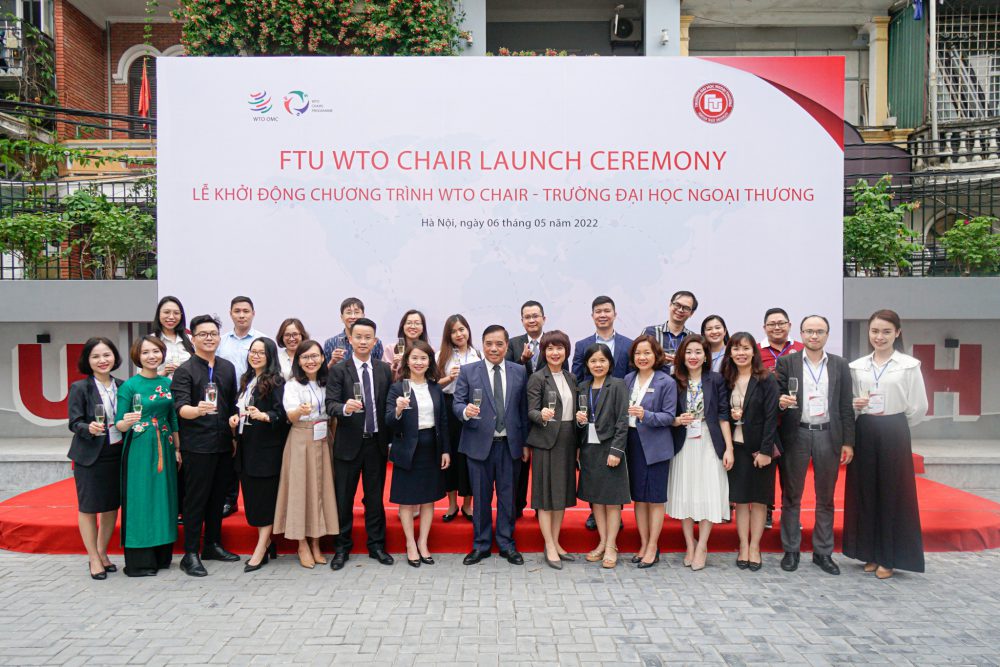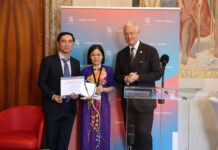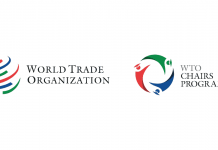WTO Chairs Programme
The WTO Chairs Programme was launched in 2010. It aims to enhance knowledge and understanding of the trading system among academics and policymakers in developing countries through curriculum development, research and outreach activities by universities and research institutions.
Academic institutions awarded WTO Chairs receive support in the areas of research, curriculum development, and outreach activities. The chair-holders are selected through a competitive process. Fourteen institutions were originally selected as WTO Chairs for a four-year term in 2009. Seven institutions were added to the Programme in May 2014.
Following a call for applications for Phase III of the Programme, over 120 applications were received by the WTO. A selection process resulted in 17 institutions being chosen to join the network of WCP in December 2021. This further diversifies the Programme’s representation across the globe, with the network now comprising of 36 universities.
The main objectives of the Programme are to:
- Promote research in trade-related matters and highlight policy relevance
- Support the development and delivery of courses on international trade and provide teaching support
- Encourage outreach activities
- Collate information and promote knowledge sharing on international trade
- Establish a network of engaged academics
FTU WTO Chair
Foreign Trade University (FTU) has officially become one of 17 educational institutions selected from 126 institutions in 54 countries around the world, thus becoming the only educational institution in Vietnam that was selected to participate in the WTO Chairs Programme (WCP) in the third phase from 2022 to 2026.
The general objective of the WCP – FTU is “Strengthening the collaboration among industry, academia and the government in implementing Vietnam’s commitment in WTO and new FTAs”.
In order to solve the enormous gap between the implementation of state commitments from policy perspectives and the role of stakeholders, thereby proposing solutions for connecting different stakeholders in the implementation of Vietnam’s commitments in the WTO as well as new-generation FTAs, FTU organizes a range of training, research and outreach activities in collaboration with partners representing stakeholders such as MOIT, VCCI, WTO center and some trade associations.

The values that the WCP – FTU brings to stakeholders
- Capacity building for the public sector, especially local authorities/governments to understand, apply, guide, and connect with industry actors in order to properly and effectively implement Vietnam’s commitments in the WTO and FTAs.
- Capacity building for policymakers to collaborate with industry actors and research institutions/academia in the formulation of economic restructuring and other social policies (e.g., environmental and labor issues) under the impact of trade commitments.
- Capacity building for industry actors (such as MSMEs, trade associations …) to take advantage of commitments signed by the government, interact and consult with the public sector in the process of government-government negotiations, and for signing future trade agreements with better deals.
- Enhancing FTU’s research capacity for lecturers, developing the ability to connect FTU’s research and teaching activities with industry actors as well as with the public sector through experience from international experts from the WTO and other research and education organizations over the world.
- Building a network of research, consultation, and connection with industry actors (businesses) and the public sector (state agencies/authorities), with FTU as the coordinating center, in the implementation of trade commitments, through website systems, applications, and annual reports.
Expected activities implemented by FTU in the programme
- Research
- Curriculum
- Outreach and Events
Research Activities
- Research in Recent performance of commitment implementation + Bottlenecks
- Research on:
– The role of different stakeholders in international trade policy implementation in Vietnam: A historical survey from “Doi Moi” to present
– Vietnam’s obligations in commitments on non-trade issues such as labor, the environment in the new generation of FTAs, and potential impacts on industry actors
– The role of social cohesion/ connection/ network or university’s role on stakeholder activities in implementing Vietnam’s commitments
– The connection and collaboration (coordination mechanism) among industry-academia – government to promote the implementation of Vietnam’s commitments in the WTO and the new-generation FTAs
- Future Research (sponsored by FTU) of 01 FTU research team, developed from one of the above researches – Starting from the 4th year of the project.
Curriculum Development and Teaching
- Designing and implementing 3 short courses:
– Trade and Investment
– Digital Trade: How to help Vietnamese enterprises to benefit from Vietnam’s commitments on e-commerce in WTO and FTAs for the Post COVID-19 Recovery
– Non-trade Issues commitments in new-generation FTAs: Implementation and challenges
- Designing and implementing 3 Academic courses:
– Trade and Investment
– Digital Trade Policy and Laws
– Non-traditional Issues in International Trade
- Updating and implementing 3 curriculums of:
– Master in International Trade Policy and Law
– Bachelor of International Trade
– Bachelor of International Trade Law
Outreach and Events
- Launch ceremony
- Five consultation workshops
- “Vietnam WTO Chairs Programme” website
- Vietnam Forum on International Trade (VFIT)
- Vietnam International Trade Moot Competition (VIT- Moot) for students of nationwide universities
- Six academic workshops
- Closing Chair ceremony



